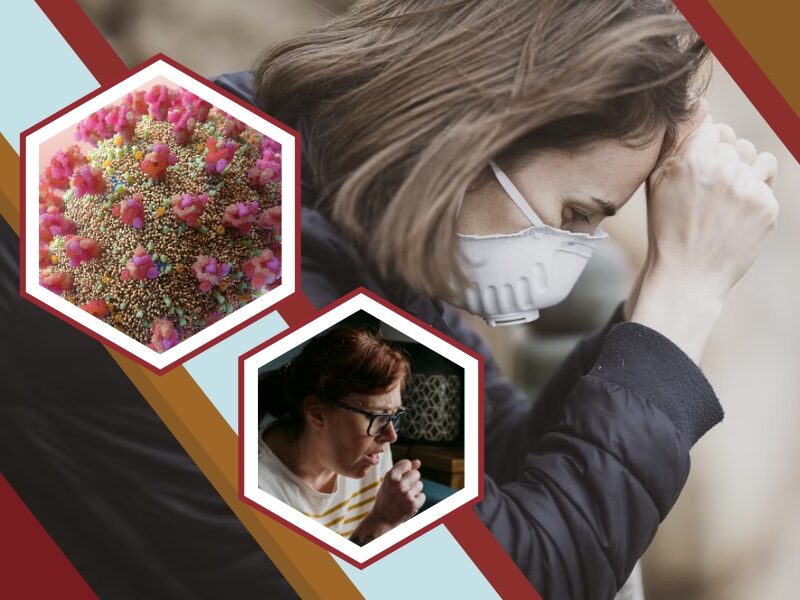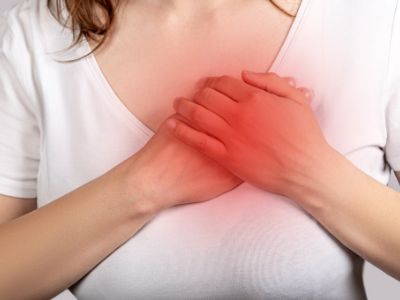Coronavirus (COVID): Symptoms, Risk Factors, Causes and Treatment

What is Coronavirus (COVID)?
Coronaviruses are a family of viruses that can cause respiratory illness in humans. They are called “corona” because of crown-like spikes on the surface of the virus. Severe acute respiratory syndrome, Middle East respiratory syndrome, and the common cold are examples of coronaviruses that cause illness in humans. The new strain of this virus was detected in Wuhan, China in December 2019 and eventually becomes a pandemic.
Signs and Symptoms of Coronavirus (COVID)
Signs and symptoms of coronavirus disease 2019 may appear 2 to 14 days after exposure. During the incubation period, the infected individual can spread the virus through respiratory droplets. Common signs and symptoms can include:
- Tiredness
- Loss of sense of taste and smell
- Fever
- Cough

Other reported symptoms can include:
- Muscle aches
- Shortness of breath or difficulty breathing
- Sore throat
- Chills and headache
- Runny nose
- Pink eye
- Nausea and vomiting
- Chest pain
- Diarrhea
- Rash
This list is not complete. Children have similar symptoms to adults and generally have mild illnesses. Emergency signs and symptoms can include:
- Persistent chest pain or pressure
- Trouble breathing
- New confusion
- Pale, gray, or blue-colored skin, lips, or nail beds depending on skin tone
- Inability to stay awake
This list is not complete. Let your healthcare provider know if you are an older adult or have chronic medical conditions, such as heart disease or lung disease, as you may have a greater risk of becoming seriously ill with this virus.
How Severe is Coronavirus (COVID)?
The severity of this virus’s symptoms can range from very mild to severe. Some people may have only a few symptoms. Some people may have no symptoms but can still spread it. Some people may experience worsening symptoms, such as shortness of breath and pneumonia, about a week after symptoms start. This is called post-COVID-19 conditions. Some children experience multisystem inflammatory syndrome, which can affect some organs and tissues after COVID-19. Rarely, do some adults experience the syndrome too.

Who are at Risk of Coronavirus (COVID)?
People who are older have a higher risk of serious illness from COVID-19, and the risk increases with age. People who have existing medical conditions also may have a higher risk of serious illness. Certain medical conditions that may increase the risk include:
- Cancer
- Serious heart diseases
- Chronic obstructive pulmonary disease
- Overweight, obesity
- Type 1 or type 2 diabetes
- Smoking
- High blood pressure
- Sickle cell disease or thalassemia
- Chronic kidney disease
- Pregnancy
- Weakened immune system due to organ transplant
- Chronic lung diseases such as pulmonary hypertension
- Asthma
- Dementia
- Liver disease
- Weakened immune system due to severe infections
- Down syndrome
- Substance use disorders
- Brain and nervous system conditions, such as strokes
If you have an emergency of these virus signs and symptoms, seek care immediately.
What Causes Coronavirus (COVID)
Coronaviruses are zoonotic or they first develop in animals before being transmitted to humans. For the virus to be transmitted from animals to humans, a person has to come into close contact with an animal that has the infection. Once the virus develops in people, coronaviruses can be transmitted from person to person through respiratory droplets.
The 2019 coronavirus has not been definitively linked to a specific animal. Researchers believe that the virus may have been passed from bats to another animal either snakes or pangolins and then transmitted to humans. This transmission likely happened in the open food market in Wuhan.
Treatment for Coronavirus Disease (COVID)
Remdisivir is an approved medication for the disease. It is given to hospitalized adults and children who are aged 12 and older in the hospital. For mild conditions, a combination of isolation and supportive care will be given until the infected individual recovers.
In relieving symptoms of the virus, you can also use Nasal FabiSpray. The properties of FabiSpray, Nitric Oxide, prevent the virus’s transmission. It also protects high-risk patients from severe disease. It also treats symptoms such as colds, congestion, sneezing, and runny nose.



